
Melbourne: The Cultural Capital of Australia
Welcome to Melbourne, a vibrant city known for its rich cultural heritage and stunning landscapes. Nestled in the southeastern part of Australia, Melbourne is a city that blends old-world charm with modern sophistication. Its diverse neighborhoods offer a unique blend of cultures, making it a melting pot of experiences for any traveler. From the bustling streets of the Central Business District to the artistic alleys of Fitzroy, Melbourne is a city that never ceases to amaze. Explore the iconic laneways adorned with street art or take a leisurely stroll along the Yarra River. Melbourne's parks and gardens, such as the Royal Botanic Gardens, provide a peaceful escape from the urban hustle. Food lovers will find Melbourne a paradise, with its plethora of cafes, restaurants, and markets offering cuisines from around the world. Don't miss out on the Queen Victoria Market, where you can sample local produce and delicacies. The city's vibrant arts scene, with numerous galleries, theaters, and live music venues, ensures there's always something exciting happening. For sports enthusiasts, Melbourne is home to major events such as the Australian Open and the Melbourne Cup. If you're visiting in winter, make sure to catch an Australian Rules Football game. Melbourne's efficient public transport system makes it easy to explore the city's many attractions, from the historic Flinders Street Station to the modern Federation Square.
Local tips in Melbourne
- Use the free City Circle tram to get around the CBD and see major attractions.
- Visit the Queen Victoria Market early in the morning to avoid the crowds.
- Check out local street art in the laneways of Fitzroy and Collingwood.
- Purchase a Myki card for easy access to Melbourne's public transport.
- Try the coffee at one of Melbourne's many acclaimed cafes; the city is famous for its coffee culture.
Neighbourhoods in Melbourne
Melbourne: The Cultural Capital of Australia
Welcome to Melbourne, a vibrant city known for its rich cultural heritage and stunning landscapes. Nestled in the southeastern part of Australia, Melbourne is a city that blends old-world charm with modern sophistication. Its diverse neighborhoods offer a unique blend of cultures, making it a melting pot of experiences for any traveler. From the bustling streets of the Central Business District to the artistic alleys of Fitzroy, Melbourne is a city that never ceases to amaze. Explore the iconic laneways adorned with street art or take a leisurely stroll along the Yarra River. Melbourne's parks and gardens, such as the Royal Botanic Gardens, provide a peaceful escape from the urban hustle. Food lovers will find Melbourne a paradise, with its plethora of cafes, restaurants, and markets offering cuisines from around the world. Don't miss out on the Queen Victoria Market, where you can sample local produce and delicacies. The city's vibrant arts scene, with numerous galleries, theaters, and live music venues, ensures there's always something exciting happening. For sports enthusiasts, Melbourne is home to major events such as the Australian Open and the Melbourne Cup. If you're visiting in winter, make sure to catch an Australian Rules Football game. Melbourne's efficient public transport system makes it easy to explore the city's many attractions, from the historic Flinders Street Station to the modern Federation Square.
When is the best time to go to Melbourne?
Iconic landmarks you can’t miss
Royal Botanic Gardens Victoria - Melbourne Gardens
Explore the lush landscapes and diverse flora of Royal Botanic Gardens Victoria, a must-visit oasis in Melbourne for nature lovers and tourists.
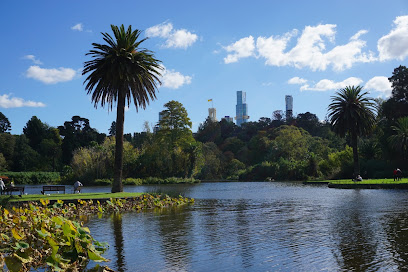
Melbourne Museum
Explore Melbourne Museum: A fascinating journey through Australia’s natural and cultural history awaits every visitor.
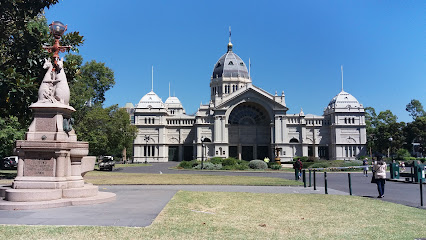
Melbourne Skydeck
Experience breathtaking views of Melbourne's skyline from the Melbourne Skydeck, the ultimate observation deck for tourists seeking incredible city panoramas.
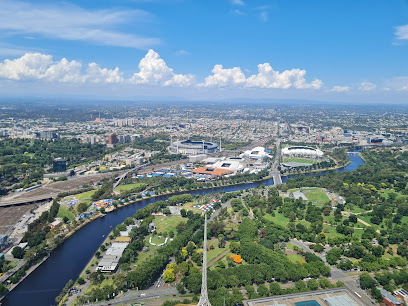
Shrine of Remembrance
Discover the profound history and serene beauty of the Shrine of Remembrance, a monumental tribute in Melbourne dedicated to honoring Australia's military heritage.
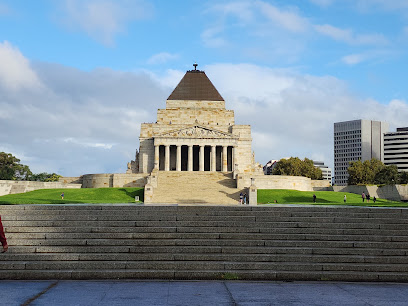
Flagstaff Gardens
Discover the serene beauty of Flagstaff Gardens, a historic park in Melbourne, perfect for relaxation, picnics, and exploring the city's vibrant culture.
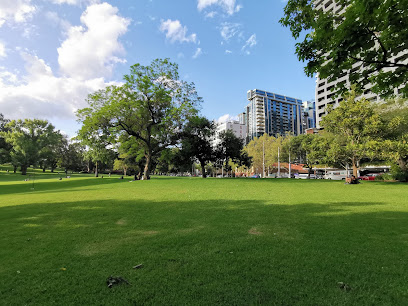
Fitzroy Gardens
Discover the tranquility and beauty of Fitzroy Gardens in Melbourne, an urban oasis filled with historic charm and stunning landscapes.
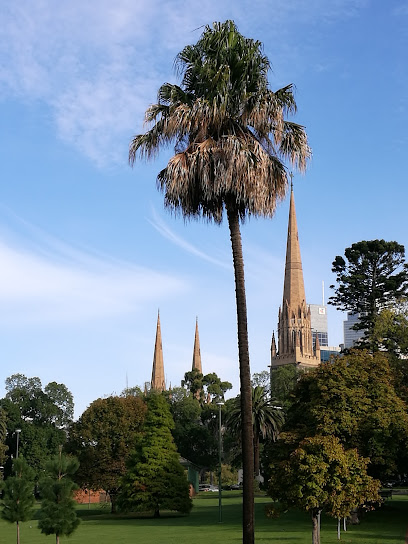
Chinatown Melbourne
Discover the vibrant history and culinary delights of Chinatown Melbourne, a must-visit destination for every traveler.
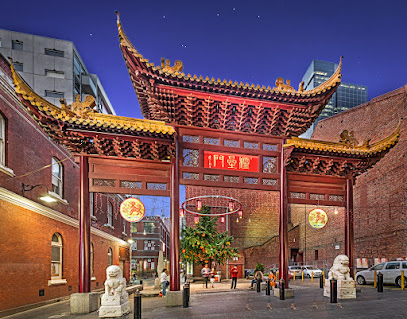
Kings Domain
Discover Kings Domain, Melbourne's tranquil urban park, rich with history, art, and breathtaking landscapes amidst the city's vibrant pulse.
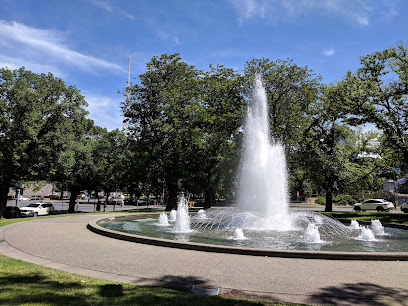
St Patrick's Cathedral
Discover the enchanting beauty of St. Patrick's Cathedral, a must-visit destination in Melbourne showcasing stunning Gothic architecture and serene ambiance.
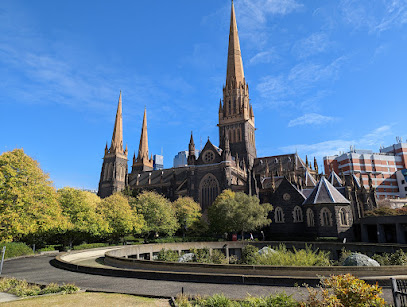
Old Melbourne Gaol
Discover the dark secrets of Old Melbourne Gaol, where history and haunting tales intertwine in a captivating museum experience.
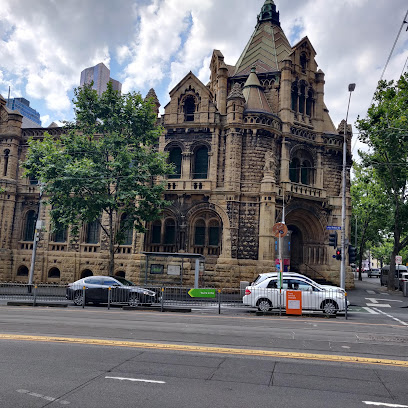
St Paul's Cathedral, Melbourne
Discover the architectural beauty and historical significance of St. Paul's Cathedral, a must-visit landmark in the heart of Melbourne.
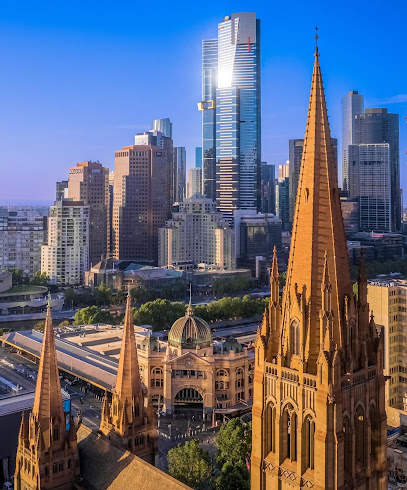
Fed Square
Experience the vibrant culture and creative spirit of Melbourne at Fed Square, a must-visit plaza for art lovers and tourists alike.
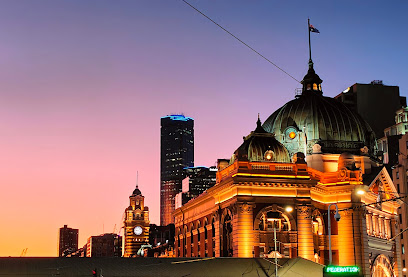
Cooks' Cottage
Explore Cooks' Cottage in Melbourne's Fitzroy Gardens, a historical landmark celebrating Captain James Cook's legacy with charming architecture and lush gardens.
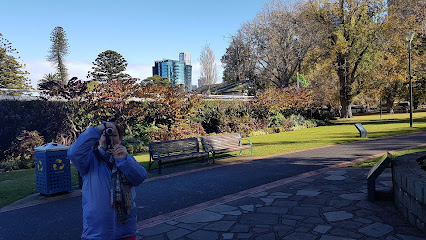
Melbourne River Cruises
Experience Melbourne's beauty from the water with unforgettable river cruises, scenic views, and relaxing boat rentals on the Yarra River.
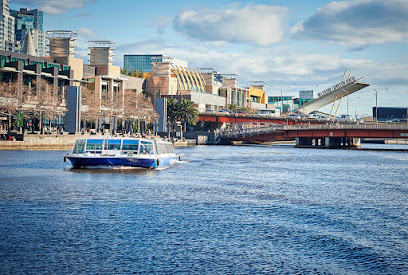
Old Treasury Building
Discover Melbourne's heritage at the Old Treasury Building, a historical museum that captures the spirit of the gold rush era and beyond.
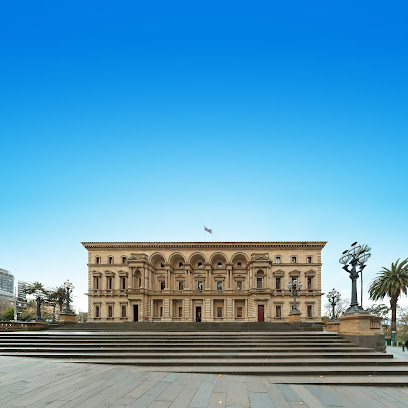
Unmissable attractions to see
Queen Victoria Market
Explore the iconic Queen Victoria Market, Melbourne's vibrant hub for fresh produce, unique crafts, and local delicacies, a must-visit for every traveler.
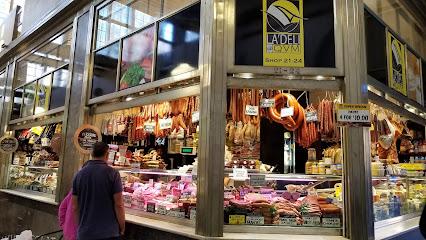
Crown Melbourne
Explore Crown Melbourne, a vibrant casino and entertainment complex with exquisite dining, luxurious hotels, and thrilling live performances, perfect for every traveler.

Melbourne Cricket Ground
Discover the Melbourne Cricket Ground, Australia's premier sports venue, and immerse yourself in a rich tapestry of sporting history and thrilling live events.
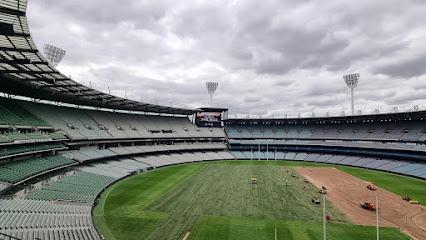
National Gallery of Victoria
Explore the National Gallery of Victoria, Australia's oldest art museum, offering an extensive collection of local and international artworks in Melbourne.
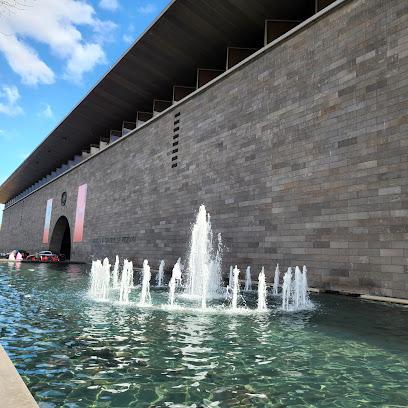
Royal Botanic Gardens Victoria - Melbourne Gardens
Explore the Royal Botanic Gardens Victoria in Melbourne, a stunning natural sanctuary with diverse flora, tranquil lakes, and serene landscapes for an unforgettable experience.
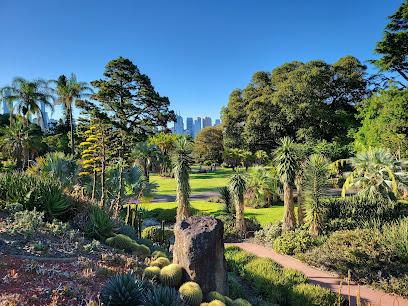
Melbourne Museum
Explore Victoria's natural and cultural history at Melbourne Museum, with exhibits for all ages and interests.
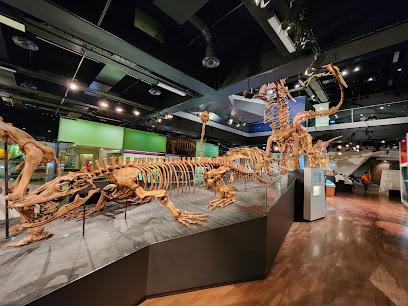
SEA LIFE Melbourne Aquarium
Explore the depths of the ocean at SEA LIFE Melbourne Aquarium, a premier attraction showcasing diverse marine life and conservation education.
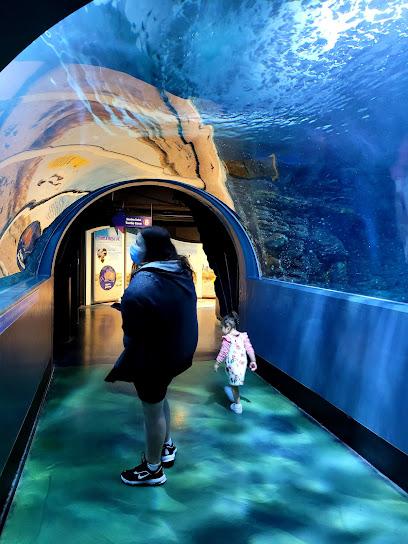
Melbourne Skydeck
Experience Melbourne from the Southern Hemisphere's highest observation deck, with panoramic views and thrilling attractions.
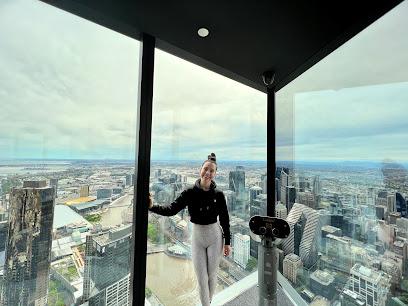
Werribee Open Range Zoo
Experience the thrill of an African safari without leaving Victoria at Werribee Open Range Zoo, a premier wildlife attraction showcasing diverse species.
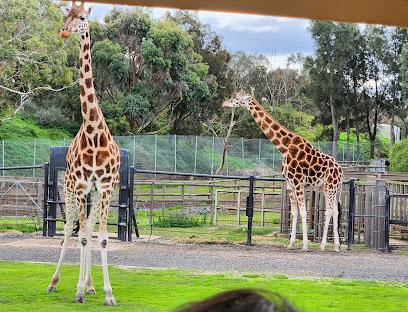
Marvel Stadium
Marvel Stadium in Docklands is your gateway to thrilling sports events and spectacular concerts in the heart of Melbourne, Australia.
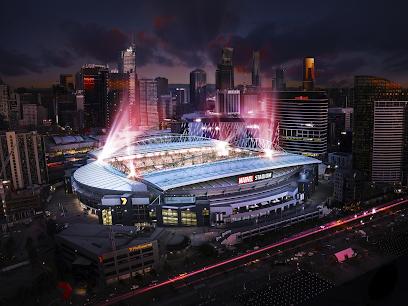
Melbourne Airport
Discover Melbourne Airport, a vibrant transit hub blending convenience with cultural experiences, from shopping and dining to art installations.
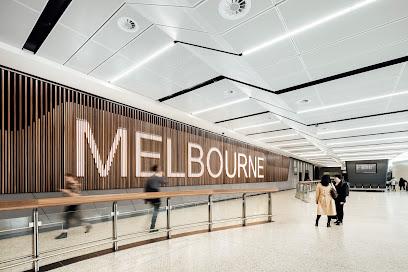
Yarra Valley Chocolaterie & Ice Creamery
Indulge in handcrafted chocolates and artisanal ice cream amidst the scenic beauty of the Yarra Valley. Open daily!
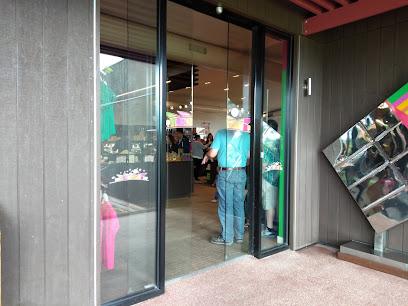
Brighton Bathing Boxes
Discover the colorful Brighton Bathing Boxes, a Victorian coastal gem that captures the essence of local culture and history along the stunning shoreline.
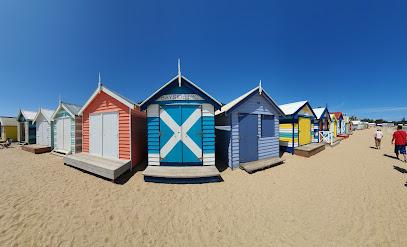
The District Docklands
Melbourne's premier shopping and entertainment destination, offering a diverse range of attractions, dining, and international brands.
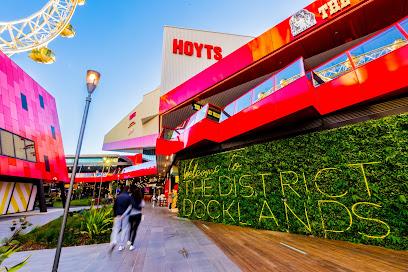
Puffing Billy Railway
Experience a nostalgic journey through the Dandenong Ranges on Australia's iconic Puffing Billy Railway, a historic steam train adventure.
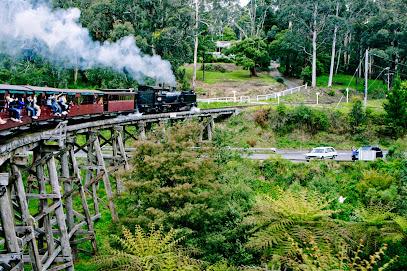
Essential places to dine
Stalactites Restaurant
Indulge in authentic Greek cuisine at Stalactites Restaurant in Melbourne – where every meal is a celebration of Mediterranean flavors.
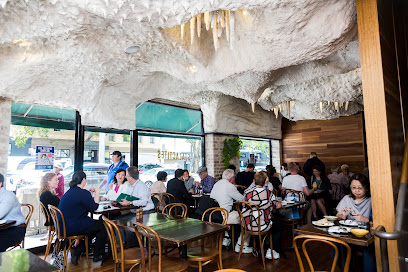
Supernormal
Experience the best of Asian fusion cuisine at Supernormal in Melbourne—where tradition meets modern flair for an unforgettable dining adventure.
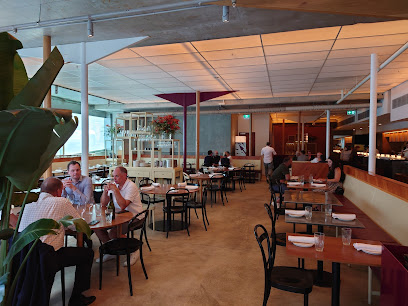
Rice Paper Scissors
Experience vibrant Asian cuisine at Rice Paper Scissors in Melbourne – where flavor meets atmosphere for an unforgettable meal.
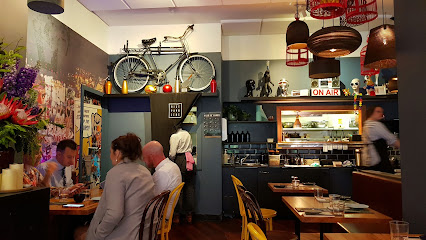
Tipo 00
Experience authentic handmade pasta at Tipo 00 in Melbourne - where tradition meets modern Italian dining.
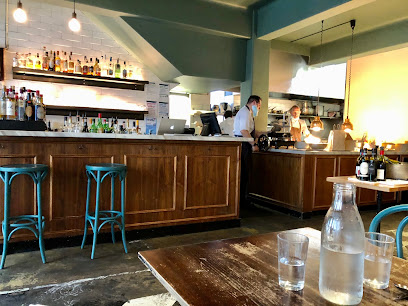
Red Spice Road
Experience authentic Thai and Vietnamese flavors at Red Spice Road in Melbourne - a top destination for food enthusiasts.
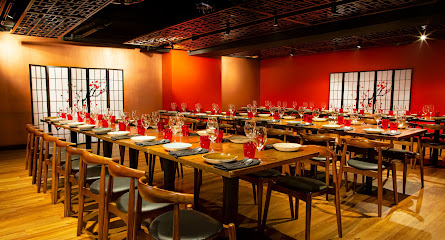
Hochi Mama
Experience the vibrant fusion of Thai and Vietnamese cuisines at Hochi Mama in Melbourne—where every dish tells a story.
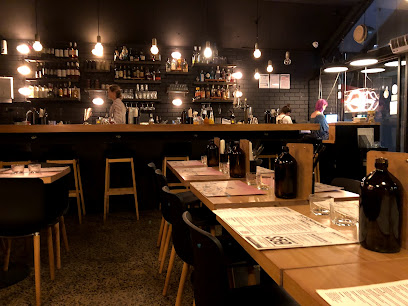
The George on Collins
Discover the vibrant flavors of Asian cuisine at The George on Collins, Melbourne's premier destination for brunch, lunch, and cocktails.
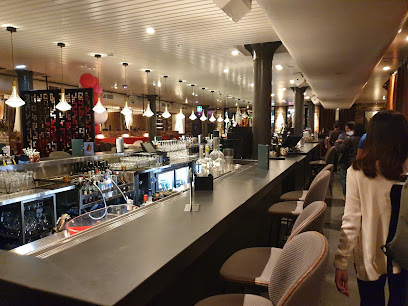
Maha Restaurant
Experience exceptional Middle Eastern cuisine at Maha Restaurant in Melbourne - where tradition meets modern culinary artistry.
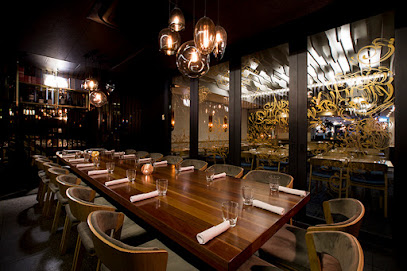
Osteria Ilaria
Discover authentic Italian flavors at Osteria Ilaria in Melbourne, where culinary excellence meets warm hospitality.
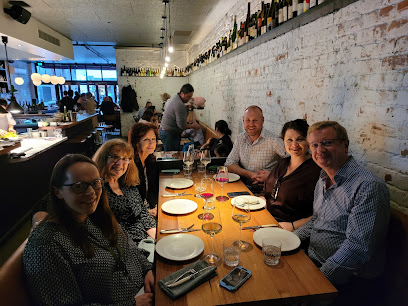
Cumulus Inc.
Discover the vibrant culinary scene at Cumulus Inc., where modern Australian cuisine meets exceptional hospitality in Melbourne.
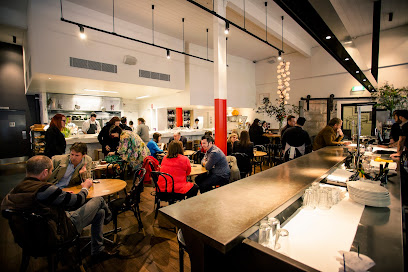
Lucy Liu Kitchen and Bar
Experience vibrant Asian flavors at Lucy Liu Kitchen and Bar in Melbourne - where culinary artistry meets modern dining.
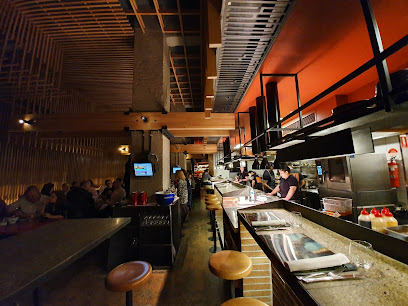
Palermo
Savor authentic Argentinian cuisine at Palermo - Melbourne's premier steakhouse offering an unforgettable dining experience.
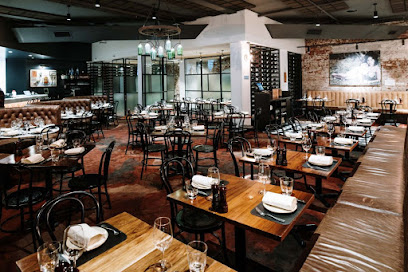
Kisumé
Experience exceptional Japanese cuisine at Kisumé in Melbourne—where tradition meets modern elegance.
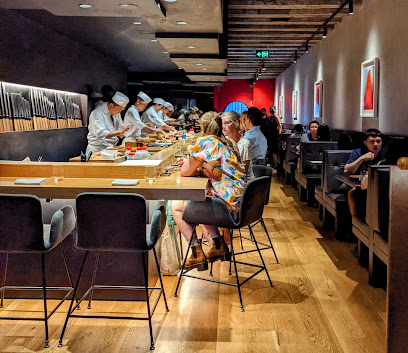
Mjølner
Experience the essence of Nordic cuisine at Mjølner, where unique flavors meet exquisite cocktails in the heart of Melbourne.
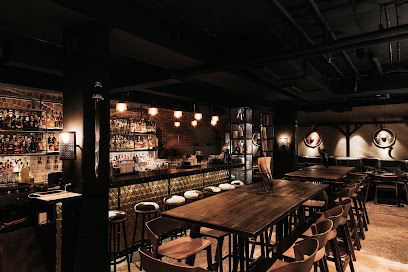
Miznon
Experience the vibrant flavors of Mediterranean cuisine at Miznon, Melbourne's premier destination for fresh ingredients and Middle Eastern delights.
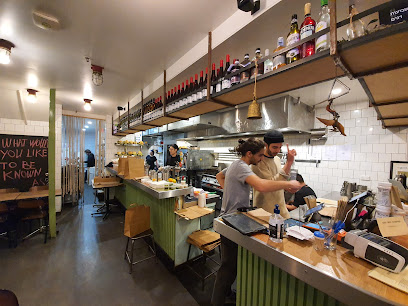
Markets, malls and hidden boutiques
Emporium Melbourne
Explore Emporium Melbourne, where luxury shopping meets diverse dining, and immerse yourself in the heart of Melbourne's vibrant culture.
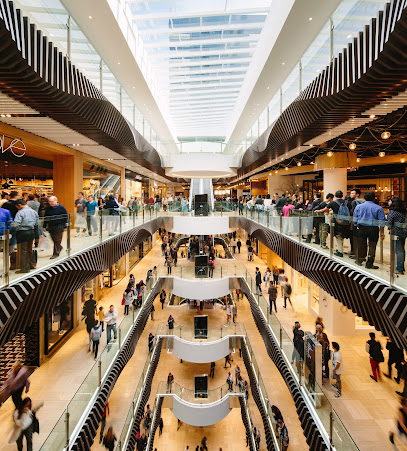
Bourke Street Mall
Discover the vibrant heart of Melbourne at Bourke Street Mall, where shopping meets culture in an iconic urban setting.
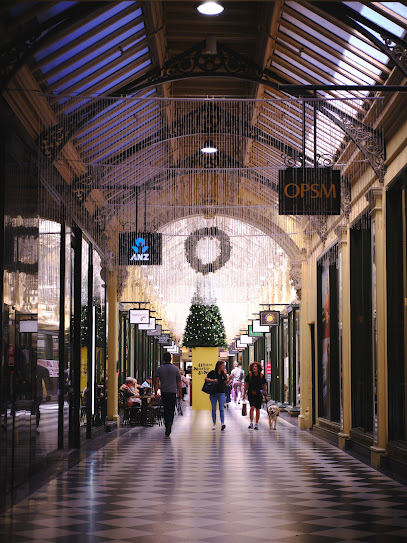
Royal Arcade
Explore Royal Arcade: Melbourne's historic shopping haven filled with boutiques, cafes, and stunning architecture.
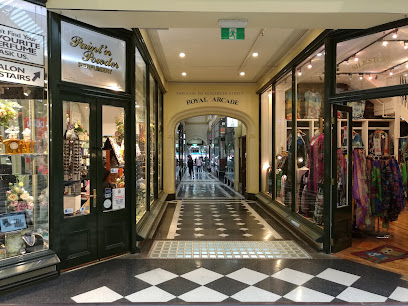
The Block Arcade
Experience the charm of The Block Arcade, a historic shopping destination in Melbourne filled with unique boutiques and delightful eateries.
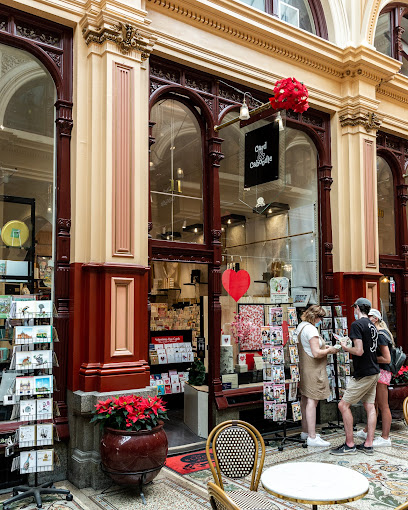
RetroStar Vintage Clothing
Explore RetroStar Vintage Clothing in Melbourne for a unique selection of timeless fashion and accessories that embody the spirit of past decades.
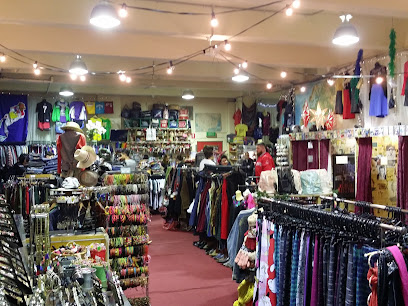
Wunderkammer
Explore Wunderkammer in Melbourne for unique antiques, collectibles, and souvenirs that capture the city's vibrant history and charm.
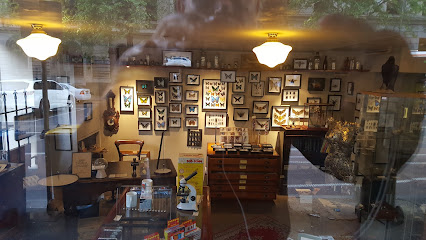
Allanson's Souvenirs
Explore Allanson's Souvenirs in Queen Victoria Market for unique local gifts and memorabilia that capture the essence of Melbourne.
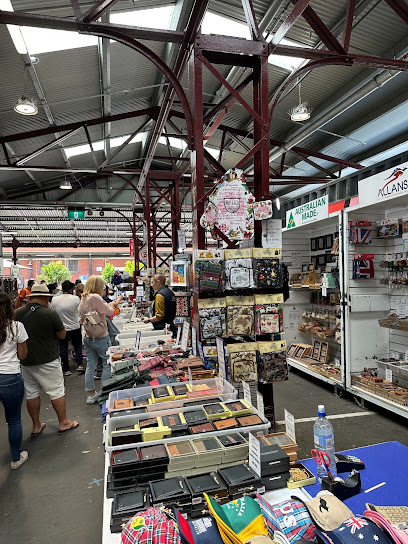
Melbourne Souvenirs
Explore Melbourne Souvenirs: Your gateway to unique gifts and local treasures that capture the spirit of Australia's vibrant culture.
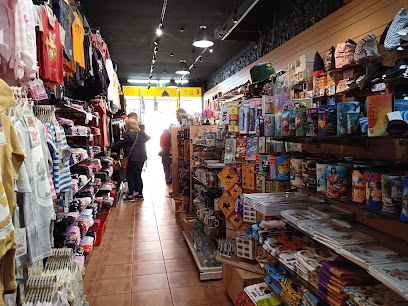
Souvenirs on Swanston
Explore the best of Australian souvenirs at Souvenirs on Swanston, where every item tells a story of the land and its culture.
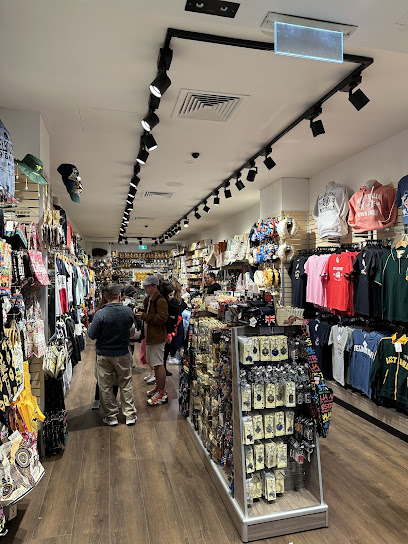
Ambiance Gifts
Explore Ambiance Gifts, Melbourne's enchanting gift shop offering unique treasures and holiday decorations for every occasion.
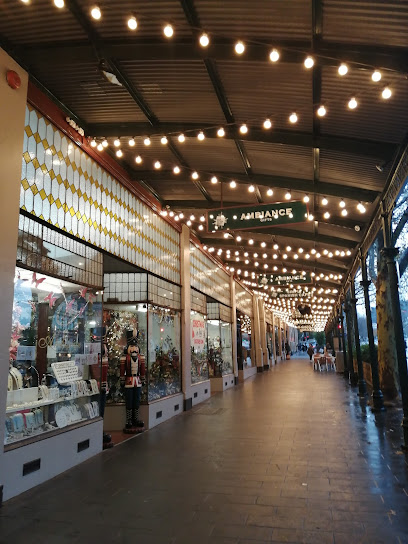
OTC Vintage
Explore Melbourne's vintage haven at OTC Vintage, where unique clothing and classic records await every fashionista and music lover.
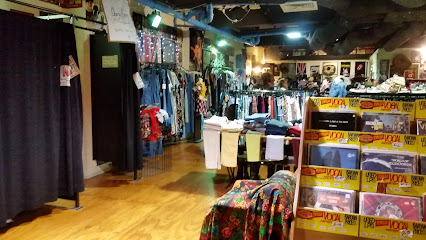
MEEQ EMPORIUM ft JELLYCATS MIFFY GHIBLI PUSHEEN DECOLE
Discover a whimsical gift shop in Melbourne with unique toys, homewares, and delightful greeting cards, perfect for souvenirs and special occasions.
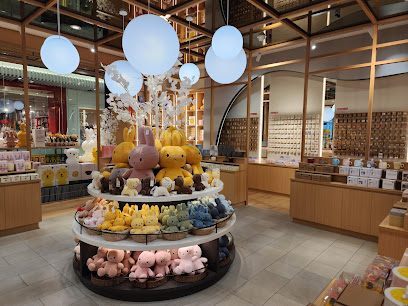
House of Handmade
Explore the House of Handmade in Richmond for unique gifts and local artisan treasures that tell a story.
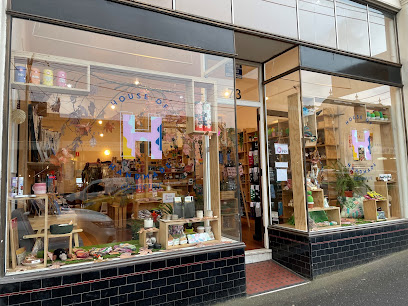
Vintage Sole - Melbourne CBD
Discover Melbourne's Vintage Sole: Your destination for unique vintage fashion, with a curated selection of retro clothing and accessories.
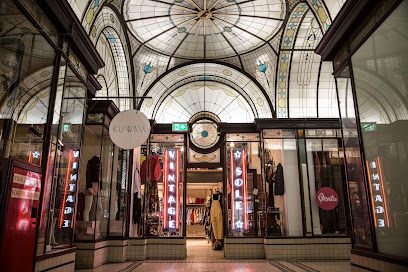
Hunter Gatherer City
Discover unique treasures at Hunter Gatherer City, Melbourne's premier op shop where every purchase supports charitable causes and sustainability.
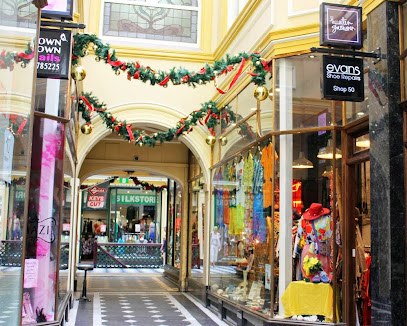
Essential bars & hidden hideouts
Boilermaker House
Discover the vibrant atmosphere of Boilermaker House, Melbourne's premier destination for craft beer and artisan cocktails.
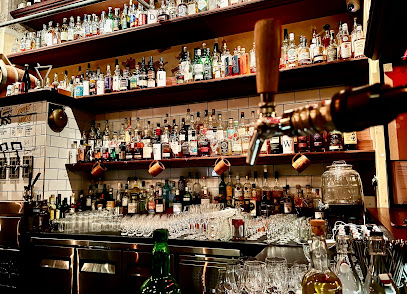
Eau De Vie Melbourne
Discover the sophisticated charm of Eau De Vie Melbourne, where handcrafted cocktails meet an intimate and luxurious setting.
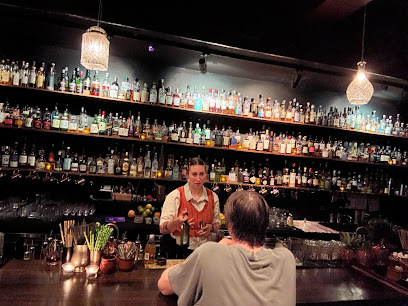
State of Grace
Experience Melbourne's vibrant cocktail culture at State of Grace, where innovative drinks and exquisite cuisine come together in style.
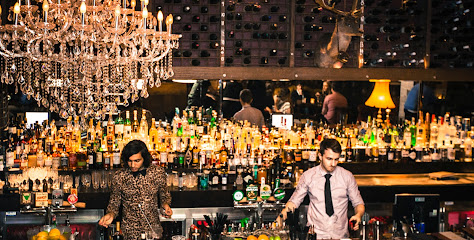
Heartbreaker
Discover Heartbreaker, Melbourne's lively bar offering innovative cocktails and a vibrant atmosphere, perfect for enjoying the city's nightlife.
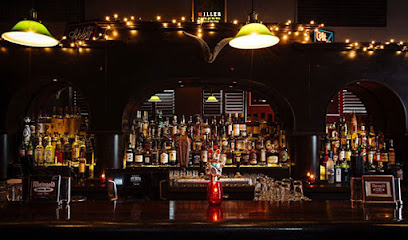
Trinket Bar
Discover the magic of Trinket Bar, a unique cocktail haven in Melbourne that offers innovative drinks and delicious pizzas in a vibrant setting.
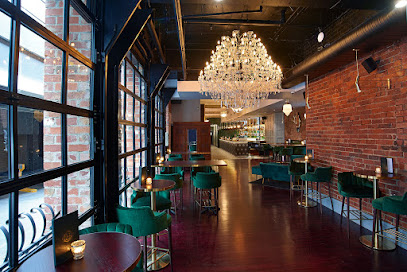
Berlin Bar
Discover the eclectic charm of Berlin Bar in Melbourne, where expertly crafted cocktails and a vibrant atmosphere await every visitor.
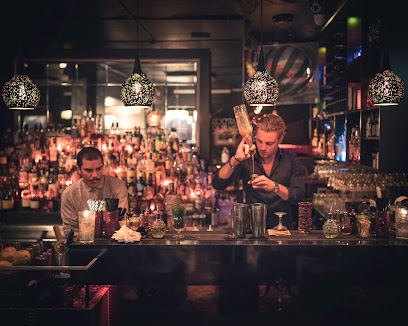
Beneath Driver Lane
Experience the hidden charm of Beneath Driver Lane, a cozy bar in Melbourne offering craft drinks and a vibrant atmosphere for unforgettable nights.
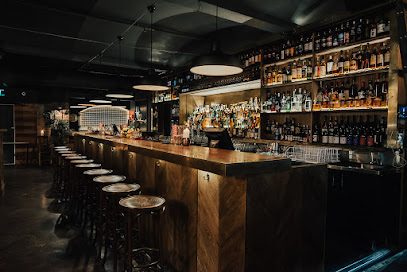
Workshop Bar
Discover the vibrant cocktail culture of Melbourne at Workshop Bar, where exquisite drinks and a lively atmosphere await you.
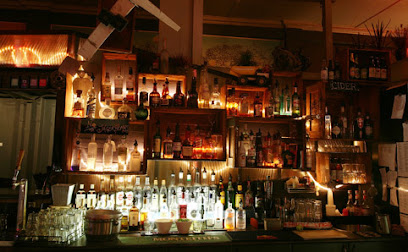
Madame Brussels
Experience the vibrant cocktail culture of Melbourne at Madame Brussels, where creative drinks and a lively atmosphere await.
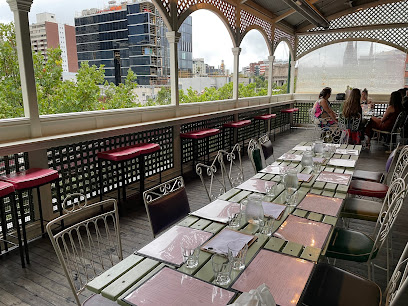
Union Electric Bar & Rooftop
Discover the vibrant atmosphere of Union Electric Bar & Rooftop in Melbourne, where creative cocktails and stunning views await.
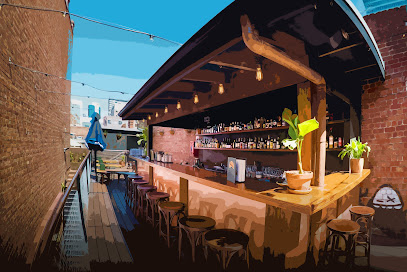
Siglo
Experience the elegance of Melbourne at Siglo, a rooftop bar offering exquisite cocktails and stunning city views for an unforgettable night out.
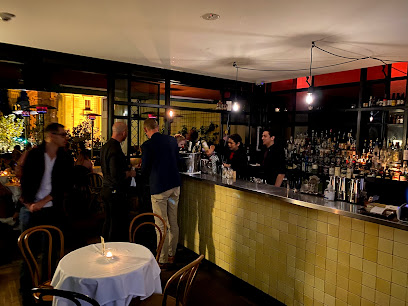
Nick & Nora's Melbourne
Experience sophisticated dining and exquisite cocktails at Nick & Nora's Melbourne, the city's premier bar and restaurant destination.
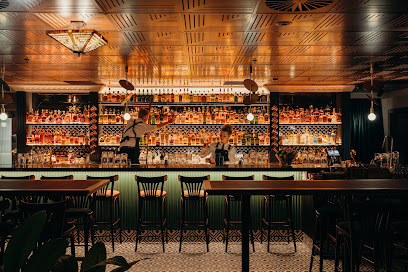
Bar Ampere
Discover the vibrant atmosphere of Bar Ampere, Melbourne's hidden nightlife gem offering an extensive drink menu and a unique ambiance.
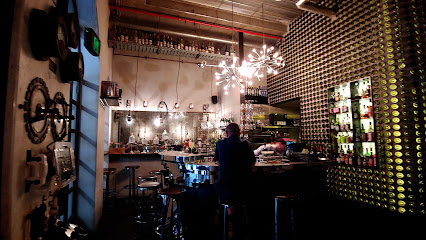
Chuckle Park Bar
Experience the vibrant nightlife of Melbourne at Chuckle Park Bar, where exquisite cocktails and a lively atmosphere await.
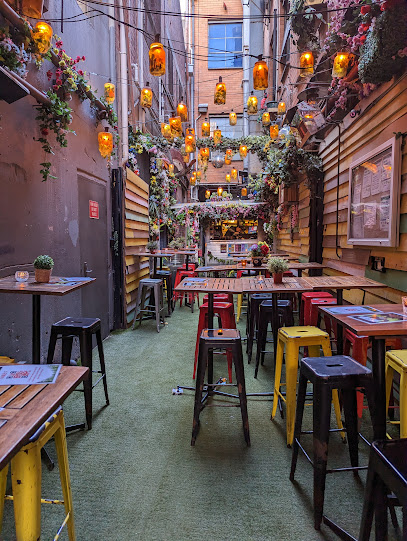
Cabinet Bar & Balcony
Discover the vibrant atmosphere at Cabinet Bar & Balcony, where cocktails, wines, and delectable bites create the ultimate Melbourne experience.
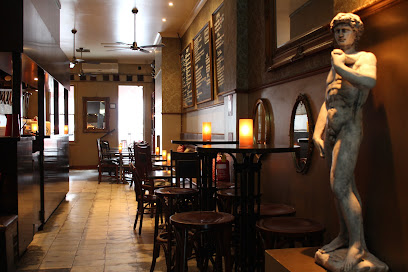
Travel experiences inspired by this city
Explore more travel diariesLocal Phrases
-
- HelloG'day
[G'day] - GoodbyeSee ya
[See ya] - YesYeah
[Yeah] - NoNah
[Nah] - Please/You're welcomePlease/No worries
[Please/No worries] - Thank youCheers
[Cheers] - Excuse me/SorrySorry
[Sorry] - How are you?How ya going?
[How ya going?] - Fine. And you?Good. You?
[Good. You?] - Do you speak English?Speak English?
[Speak English?] - I don't understandNo idea
[No idea]
- HelloG'day
-
- I'd like to see the menu, pleaseCan I see the menu, mate?
[Can I see the menu, mate?] - I don't eat meatNo meat for me
[No meat for me] - Cheers!Cheers!
[Cheers!] - I would like to pay, pleaseI'll pay now, thanks
[I'll pay now, thanks]
- I'd like to see the menu, pleaseCan I see the menu, mate?
-
- Help!Help!
[Help!] - Go away!Bugger off!
[Bugger off!] - Call the Police!Get the cops!
[Get the cops!] - Call a doctor!Get a doctor!
[Get a doctor!] - I'm lostLost
[Lost] - I'm illSick
[Sick]
- Help!Help!
-
- I'd like to buy...Looking to buy...
[Looking to buy...] - I'm just lookingJust browsing
[Just browsing] - How much is it?How much?
[How much?] - That's too expensiveToo pricey
[Too pricey] - Can you lower the price?Can you do a deal?
[Can you do a deal?]
- I'd like to buy...Looking to buy...
-
- What time is it?What's the time?
[What's the time?] - It's one o'clockIt's one
[It's one] - Half past (10)Half past ten
[Half past ten] - MorningArvo
[Arvo] - AfternoonArvo
[Arvo] - EveningEvening
[Evening] - YesterdayYesterday
[Yesterday] - TodayToday
[Today] - TomorrowTomorrow
[Tomorrow] - 1One
[One] - 2Two
[Two] - 3Three
[Three] - 4Four
[Four] - 5Five
[Five] - 6Six
[Six] - 7Seven
[Seven] - 8Eight
[Eight] - 9Nine
[Nine] - 10Ten
[Ten]
- What time is it?What's the time?
-
- Where's a/the...?Where's the...?
[Where's the...?] - What's the address?What's the addy?
[What's the addy?] - Can you show me (on the map)?Can you show me?
[Can you show me?] - When's the next (bus)?When's the next (bus)?
[When's the next (bus)?] - A ticket (to ....)A ticket (to ....)
[A ticket (to ....)]
- Where's a/the...?Where's the...?
History of Melbourne
-
Long before European settlement, the area now known as Melbourne was inhabited by the Wurundjeri, Boonwurrung, and Wathaurong people of the Kulin Nation. Their rich cultural traditions, deep spiritual connection to the land, and intricate social systems have left an indelible mark on the region. Sites such as the Birrarung Marr along the Yarra River and the ceremonial grounds at the Royal Botanic Gardens are testament to their enduring legacy.
-
Melbourne was founded on 30 August 1835 by settlers from Tasmania, led by John Batman and John Pascoe Fawkner. Batman's infamous treaty with the local Aboriginal people led to the establishment of a settlement on the northern bank of the Yarra River. The city was named in honor of the British Prime Minister, William Lamb, 2nd Viscount Melbourne, in 1837.
-
The discovery of gold in Victoria in 1851 transformed Melbourne into a bustling metropolis. Prospectors from around the world flocked to the city, hoping to strike it rich. The wealth generated from the gold rush funded the construction of grand buildings, including the Melbourne Town Hall and the State Library of Victoria, and laid the foundations for the city's opulent Victorian architecture.
-
In 1854, tensions between gold miners and authorities culminated in the Eureka Rebellion at the Eureka Stockade in Ballarat, a significant event in Victoria's history. The miners' demand for better working conditions and political representation led to a bloody clash with government troops. The rebellion ultimately resulted in reforms that expanded democratic rights and shaped the political landscape of Melbourne and Victoria.
-
On 1 January 1901, Melbourne played a pivotal role in the Federation of Australia, serving as the nation's temporary capital until Canberra was established in 1927. The Royal Exhibition Building in Carlton Gardens hosted the opening of the first Australian Parliament, marking a significant milestone in the country's history.
-
The post-World War II era saw an influx of immigrants from Europe, Asia, and the Middle East, enriching Melbourne's cultural fabric. This period marked the beginning of Melbourne's transformation into a vibrant, multicultural city, known for its diverse cuisine, arts, and festivals. Landmarks like Lygon Street's Italian precinct and the Greek community in Oakleigh reflect this rich cultural tapestry.
-
In 1956, Melbourne became the first city in the Southern Hemisphere to host the Olympic Games. The event showcased Melbourne on the world stage, bringing significant infrastructure development and international recognition. The Melbourne Cricket Ground (MCG), a key venue for the games, remains a symbol of the city's sporting legacy.
-
Today, Melbourne is renowned for its eclectic mix of contemporary and historic architecture, vibrant arts scene, and dynamic street culture. The city's laneways, filled with street art, cafes, and boutiques, epitomize Melbourne's unique character. Major cultural institutions such as the National Gallery of Victoria and the Melbourne Theatre Company contribute to its reputation as Australia's cultural capital.
Melbourne Essentials
-
Melbourne is served by Melbourne Airport (Tullamarine), located about 23 kilometers northwest of the city center. International and domestic flights operate from this airport. Avalon Airport, another option, is about 55 kilometers southwest of the city and mainly serves low-cost carriers. From the airport, you can take the SkyBus, which offers a direct service to the city center, or opt for taxis and rideshare services.
-
Melbourne boasts a comprehensive public transport system that includes trams, trains, and buses. The Myki card is essential for travel on all public transport. Taxis and rideshare services like Uber are also widely available. For a unique experience, consider renting a bicycle; Melbourne has a network of bike lanes and paths. The City Circle Tram is a free service that loops around the central business district (CBD), making it convenient for tourists.
-
The official currency in Melbourne is the Australian Dollar (AUD). Credit and debit cards are widely accepted, and ATMs are plentiful throughout the city. Contactless payments such as Apple Pay and Google Wallet are also commonly used. It's advisable to carry some cash for use in smaller establishments or markets that may not accept cards.
-
Melbourne is generally a safe city for tourists, but it's always wise to take standard precautions. Areas like St Kilda and parts of the CBD can experience higher crime rates, particularly at night. Avoid walking alone in poorly lit areas and be cautious with your belongings in crowded places. Emergency services can be reached by dialing 000.
-
In case of an emergency, dial 000 for police, fire, or ambulance services. Melbourne has numerous hospitals and clinics that provide high-quality medical care. Pharmacies are widely available for minor health issues. It is advisable to have travel insurance that covers medical emergencies.
-
Fashion: Do dress comfortably but stylishly; Melbourne is known for its fashion-forward residents. Avoid overly casual attire like flip-flops in upscale venues. Religion: Do respect places of worship by dressing modestly and keeping noise levels down. Public Transport: Do stand on the left side of escalators to allow others to pass on the right. Don’t eat or drink on public transport. Greetings: Do greet people with a friendly 'Hello' or 'Hi.' A handshake is also common. Eating & Drinking: Do try local dishes and coffee. Melbourne has a vibrant food and café culture. Don’t tip excessively; tipping is appreciated but not obligatory.
-
To experience Melbourne like a local, visit the Queen Victoria Market for fresh produce and unique souvenirs. Explore the city's laneways and arcades for hidden bars, street art, and boutique shops. Take a stroll along the Yarra River or enjoy a day at one of Melbourne's many parks and gardens. For a true local experience, attend an AFL game at the Melbourne Cricket Ground (MCG) or a live music event.
Trending Landmark in Melbourne
-
Royal Botanic Gardens Victoria - Melbourne Gardens
-
Melbourne Museum
-
Melbourne Skydeck
-
Shrine of Remembrance
-
Flagstaff Gardens
-
Fitzroy Gardens
-
Chinatown Melbourne
-
Kings Domain
-
St Patrick's Cathedral
-
Old Melbourne Gaol
-
St Paul's Cathedral, Melbourne
-
Fed Square
-
Cooks' Cottage
-
Melbourne River Cruises
-
Old Treasury Building
Nearby Cities to Melbourne
-
Things To Do in Canberra
-
Things To Do in Hobart
-
Things To Do in Adelaide
-
Things To Do in Sydney
-
Things To Do in Kangaroo Island
-
Things To Do in Byron Bay
-
Things To Do in Gold Coast
-
Things To Do in Surfers Paradise
-
Things To Do in Brisbane
-
Things To Do in Noosa
-
Things To Do in Alice Springs
-
Things To Do in Airlie Beach
-
Things To Do in The Whitsundays
-
Things To Do in Queenstown
-
Things To Do in Invercargill



















